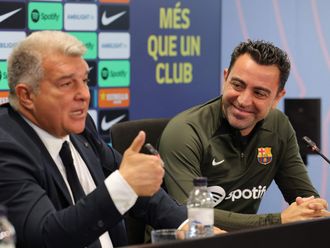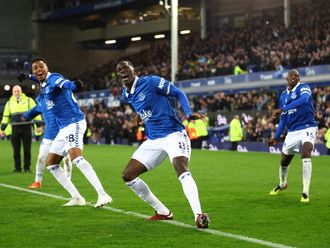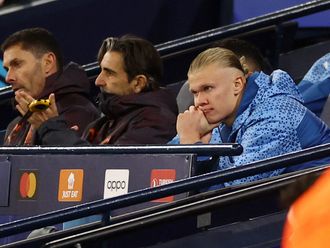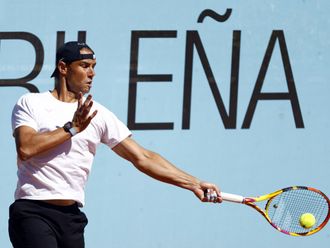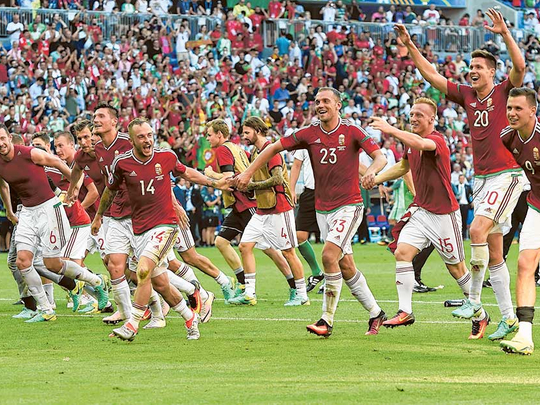
Paris: After 36 matches in France, the devil has taken the hindmost, and you had to be dreadful to end up in his net. The smaller countries left at Euro 2016 are raising, rather than lowering, the tone, whatever purists think. One of these nations will be a Euro 2016 finalist: Switzerland, Poland, Croatia, Portugal, Wales, Northern Ireland, Hungary or Belgium. As the Sporting Intelligence website noted, an unexpectedly lopsided draw has packed one half with the winners of 11 World Cups and nine European Championships and the other with precisely zero international trophies. In the extended 24-team format, a swarm of nations arrived in France feeding off ancient memories or no memories at all. Iceland, England’s opponents in Nice, have absolutely no tournament pedigree. Northern Ireland were condemned to be forever wistful about the 1982 World Cup, where they beat Spain. Wales were stuck in 1958 — the last time they made it to a championship. Hungary, who lost 8-1 to Holland three years ago, were a museum haunted by the Magical Magyars of Ferenc Puskas.
This tournament’s group phase was loaded with soft routes through and reprieves. Slovakia, the Republic of Ireland, Portugal and Northern Ireland advanced as third-place finishers. The Northern Irish scraped together three points and two goals, but it would take a hard heart to see the democratisation of tournament football as anything other than a boost and a freshening of the game in countries outside the old elite who are now squashed into England’s half of the draw. Iceland’s Eidur Gudjohnsen, who has won league titles with Chelsea and Barcelona, wrote after the win over Austria: “I’ve taken part in some big games in my career. None of them compare with today. This is our moment.”
Across the spectrum of lesser names we see players buying into a collective national quest, not because the manager has sold them a dreamy giant-killing narrative, but because the chances of success are now greater. In return, players get the pleasure of performing for the people they represent. This has always been there, but it was assumed to be fading fast, in the age of mega-club power. The proof is in the extraordinary communion between the players and fans of Iceland, Wales, Northern Ireland and the Republic, who have beaten Germany and Italy in the last 12 months. Iceland have an advantage. Kari Arnason, their best player against Austria, said he “recognised 50 per cent” of his team’s supporters. You can see this on the streets of France. The disciples of small countries on the march have a different look about them: a magical mystery tour relish. And because of Euro 2016 they will no longer be trapped in memories that are now decades old. For instance, either Wales or Northern Ireland will leave here as European Championship quarterfinalists, at the very least. If nationalism is on the rise in Europe, this tournament has fed the trend. Most of it is benign, some of it frightening. In the squads themselves, national unity is a theme successfully cultivated by the likes of Northern Ireland manager Michael O’Neill and Chris Coleman of Wales, who advance under the banner ‘Together Stronger’. Gareth Bale said at the start of this tournament: “We all get on so well — we’re like brothers. We’re all friends and we joke around, but when it comes down to serious business we fight for each other.”
Northern Ireland’s Kyle Lafferty said as he looked ahead to the Wales game in Paris: “With our heart and determination we honestly believe that we can go on and beat anyone. Coming here, I believed we could go the whole way with the whole squad, the way we’re fighting for each other and going the extra mile in games. It’s going to be interesting to see who wants it the most come Saturday.”
Even Roy Hodgson, the manager of 23 players who all clock on in the world’s richest league, said: “Nobody expected Denmark to win it in 92; nobody expected Greece to win the Euros; no one expected Leicester to win the league. Everyone’s got to have that hope. Everyone’s got to have that dream.”


